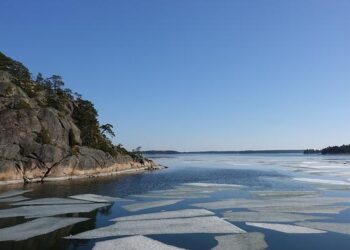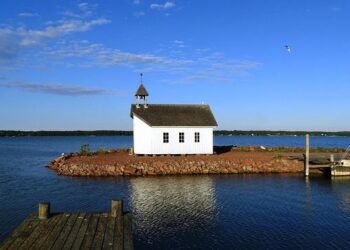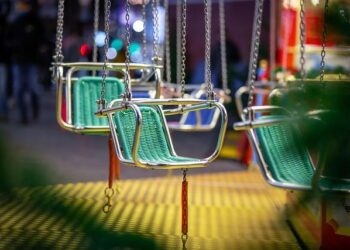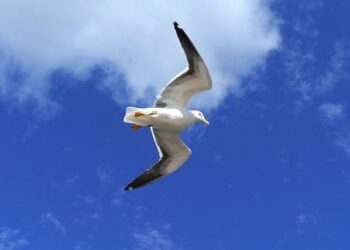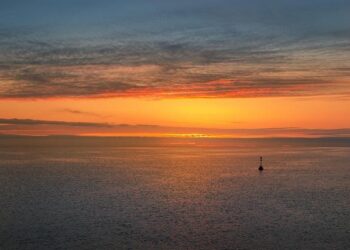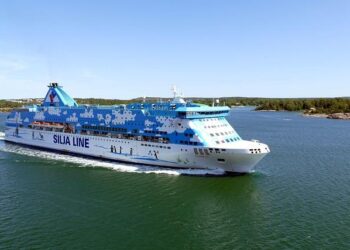The ├ģland Islands’ largest RAS salmon farm is seeking a Ōé¼15 million investment to expand its operations and meet growing demand. The ambitious project aims to enhance production capacity through the installation of advanced recirculating aquaculture systems (RAS), positioning the farm at the forefront of sustainable salmon farming in the region. Industry insiders see the expansion as a crucial step in bolstering local employment and strengthening the ├ģland Islands’ role in the global seafood market.
├ģland Islands RAS Farm Aims for Major Expansion to Boost Sustainable Salmon Production
The innovative RAS (Recirculating Aquaculture System) farm based in the ├ģland Islands is preparing for a significant boost in capacity, aiming to increase its sustainable salmon production to meet growing market demands. The project’s goal is to strengthen local aquaculture while minimizing environmental impact, an effort that has caught the attention of both regional stakeholders and international fishery investors. The farm’s management is currently seeking Ōé¼15 million in funding, emphasizing that the capital injection will provide the essential tools and technologies to finalize their expansion plan.
Key focuses of the expansion include improving water efficiency, enhancing fish welfare, and scaling production without increasing the farm’s carbon footprint. The request for funds highlights several critical investment areas:
- Advanced filtration systems to further reduce water usage
- Automated feeding technology to optimize growth rates
- Energy-efficient infrastructure to lower operational emissions
| Investment Area | Expected Impact | Timeline |
|---|---|---|
| Water filtration upgrades | 40% reduction in water use | 2024 Q4 |
| Feeding automation | 15% faster growth cycles | 2025 Q1 |
| Renewable energy integration | 30% lower emissions | 2025 Q3 |
Investment Drive Highlights Need for Advanced Technology and Infrastructure Upgrades
The ambitious expansion plan of the ├ģland Islands RAS farm underscores a pressing need for significant investment in both cutting-edge technology and robust infrastructure. Industry leaders emphasize that without such advancements, the region’s aquaculture sector risks falling behind global competitors. Upgrading to more sophisticated recirculating aquaculture systems will not only enhance sustainable salmon production but also improve operational efficiency and environmental compliance. The farm’s call for Ōé¼15 million aims to bridge this critical gap, ensuring it remains at the forefront of innovation while meeting rising market demands.
Key areas targeted for development include:
- Automation and AI-driven monitoring systems to optimize fish health and reduce manual labor
- Enhanced water filtration and biosecurity infrastructure to mitigate disease risks and improve water quality
- Energy-efficient systems to reduce the carbon footprint and operational costs
- Upgraded logistics networks facilitating faster, more reliable distribution channels
These elements form the backbone of the expansion strategy, reflecting a comprehensive approach to future-proofing the farm’s operations amid evolving environmental and market challenges.
| Investment Focus | Expected Benefit |
|---|---|
| AI Monitoring Systems | Enhanced fish welfare & productivity |
| Water Treatment Facilities | Improved environmental compliance |
| Energy Efficiency Upgrades | Lower operating expenses |
| Logistics Improvements | Faster market access |
Experts Recommend Strategic Funding Allocation to Maximize Growth and Environmental Benefits
Industry leaders emphasize the critical need for a well-planned distribution of funds that balances expansion goals with ecological responsibility. For the ├ģland Islands RAS farm, securing Ōé¼15 million is not merely about scaling operations but also enhancing sustainable practices that reduce environmental footprints. Experts highlight that targeted investments in cutting-edge technology, waste management systems, and energy-efficient infrastructure have the highest potential to deliver both economic growth and conservation benefits.
Strategic allocation of the capital must prioritize areas that drive innovation while safeguarding aquatic ecosystems. Key recommended focus areas include:
- Advanced Recirculating Aquaculture Systems (RAS) for improved water recycling and reduced consumption
- Automated monitoring tools to enhance fish health and minimize losses
- Renewable energy integration to lower carbon emissions throughout production
- Community engagement programs to foster transparency and local economic inclusion
| Investment Area | Expected Benefit | Growth Potential |
|---|---|---|
| RAS Technology Upgrade | 50% water usage reduction | High |
| Renewable Energy Systems | 35% emissions cut | Medium |
| Automated Health Monitoring | Improved yield by 20% | High |
| Community Programs | Stronger local support | Medium |
To Wrap It Up
As the ├ģland Islands RAS farm seeks Ōé¼15 million to fund its ambitious expansion, the project’s success could mark a significant step forward for sustainable salmon farming in the region. Stakeholders and investors alike will be watching closely to see if the necessary support materializes, enabling the facility to enhance production capacity while maintaining environmental responsibility. With the industry’s eyes on ├ģland, the outcome of this funding bid may well influence the future trajectory of recirculating aquaculture systems across northern Europe.



